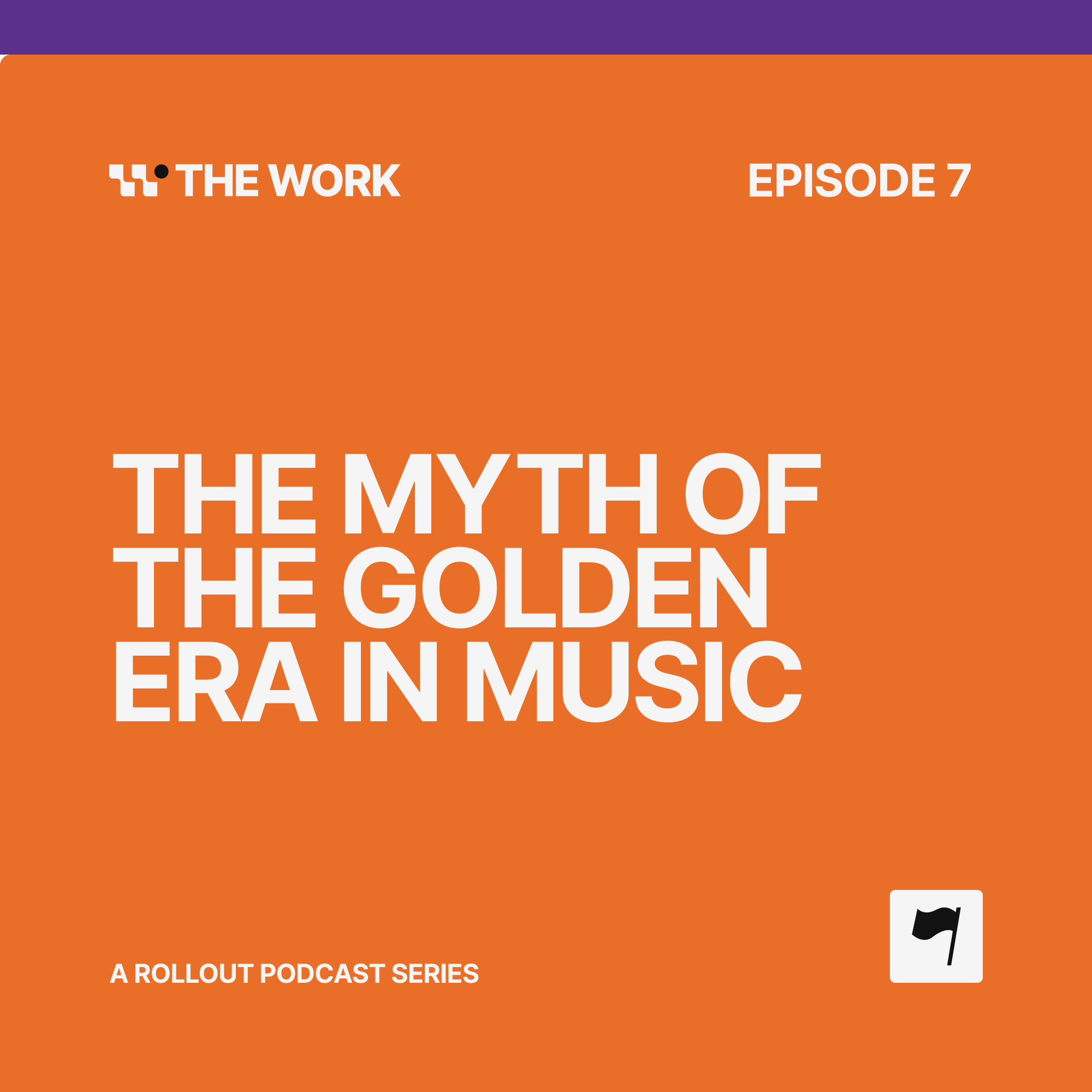The Work Podcast

The Work Podcast
Podcast Description
An honest podcast from people who actually work in the music industry for people in the music industry hosted by Melanie McClain (Founder of Blurred Lines, DSP Music Programming) Michael Pelczynski (Co-Founder Voice-Swap and EVP Rostrum Pacific, Sabrina Kalimian (artist manager & founder of Childish), and Donny Slater (GM, Third + Hayden and Co-Founder, ROLLOUT).
Podcast Insights
Content Themes
The podcast covers a variety of critical themes such as the decline of major record labels, the impact of technology and AI on music production, the differences between superfans and casual listeners, and the effectiveness of direct-to-fan initiatives. Specific episode examples include debates on the role of AI versus human creativity, the realities of financial literacy in the music business, and critical evaluations of platforms like Bandcamp and Spotify.

An honest podcast from people who actually work in the music industry for people in the music industry hosted by Melanie McClain (Founder of Blurred Lines, DSP Music Programming) Michael Pelczynski (Co-Founder Voice-Swap and EVP Rostrum Pacific, Sabrina Kalimian (artist manager & founder of Childish), and Donny Slater (GM, Third + Hayden and Co-Founder, ROLLOUT).
Everyone keeps talking about “the good old days” — but were they really that good? Or just better at hiding the bullshit? This episode kicks off with the Magic Wand Question (00:00): If you could wave a wand and change one thing about the music industry, what would it be? From equity to ownership to toxic structures, the crew goes straight for the pressure points. Then the convo pivots to influence, ownership, and the illusion of visibility (09:04). They unpack why artists are more “seen” than ever — and somehow still more broke, more leveraged, and more replaceable. Next, they hit the playlist culture trap (17:53). Are artists really breaking, or are they just being broken? They challenge the idea of “going viral” as a business model and expose the short-term mentality baked into modern rollouts. They go deeper into infrastructure and the death of the middle class artist (26:36), asking why nobody is building long-term systems for sustainability — just hype cycles and fake momentum. That leads into a fire section on cultural shifts and authenticity (35:38), including what kids are actually responding to in music right now — and how misreading that leads to disconnected marketing and generic output. Then it’s time to face the beast: AI in music (44:25). The crew unpacks the truth behind the hype, what tech is really doing to the industry, and how power is shifting — again — away from creators. They follow that with a sharper critique of tech’s role in replacing human taste (53:32). It’s not just tools replacing jobs — it’s platforms shaping culture by algorithm instead of instinct. The group slows it down for a raw talk on mental health, pressure, and community (62:16), sharing what it feels like to work in a system that rarely prioritizes humans. From there, it’s back to the money. They break down the realities of platform promotion and investor games (71:01) — who’s getting paid, who’s getting used, and why most “promotion” isn’t actually for you. Finally, they close with a call for ownership and real change (80:04). It’s not enough to make content. You have to build something that’s yours.
In this episode, Melanie McClain (Founder of Blurred Lines, DSP Music Programming) Michael Pelczynski (Co-Founder Voice-Swap and EVP Rostrum Pacific) Sabrina Kalimian (artist manager & founder of Childish), and Donny Slater (GM, Third + Hayden and Co-Founder, ROLLOUT)

Disclaimer
This podcast’s information is provided for general reference and was obtained from publicly accessible sources. The Podcast Collaborative neither produces nor verifies the content, accuracy, or suitability of this podcast. Views and opinions belong solely to the podcast creators and guests.
For a complete disclaimer, please see our Full Disclaimer on the archive page. The Podcast Collaborative bears no responsibility for the podcast’s themes, language, or overall content. Listener discretion is advised. Read our Terms of Use and Privacy Policy for more details.